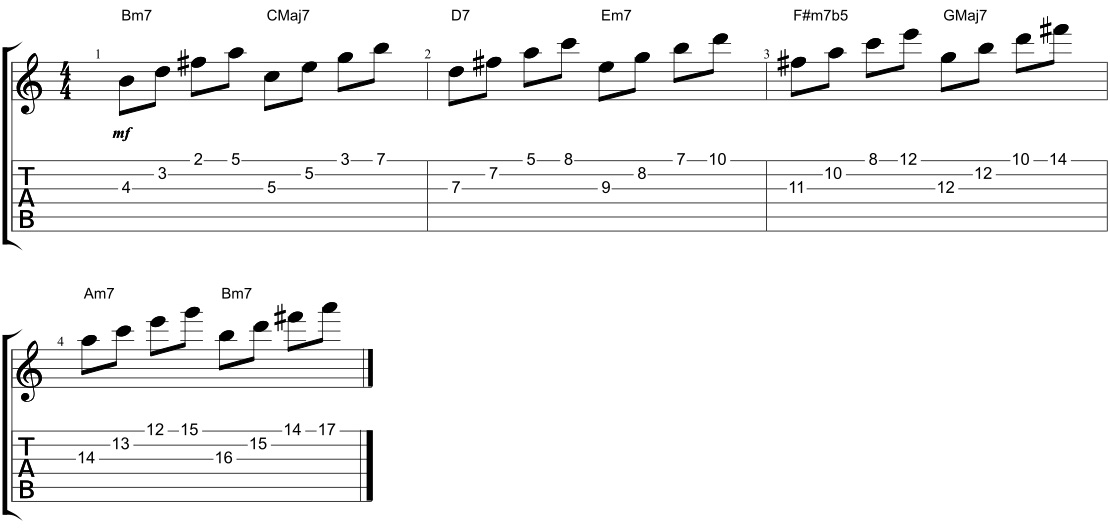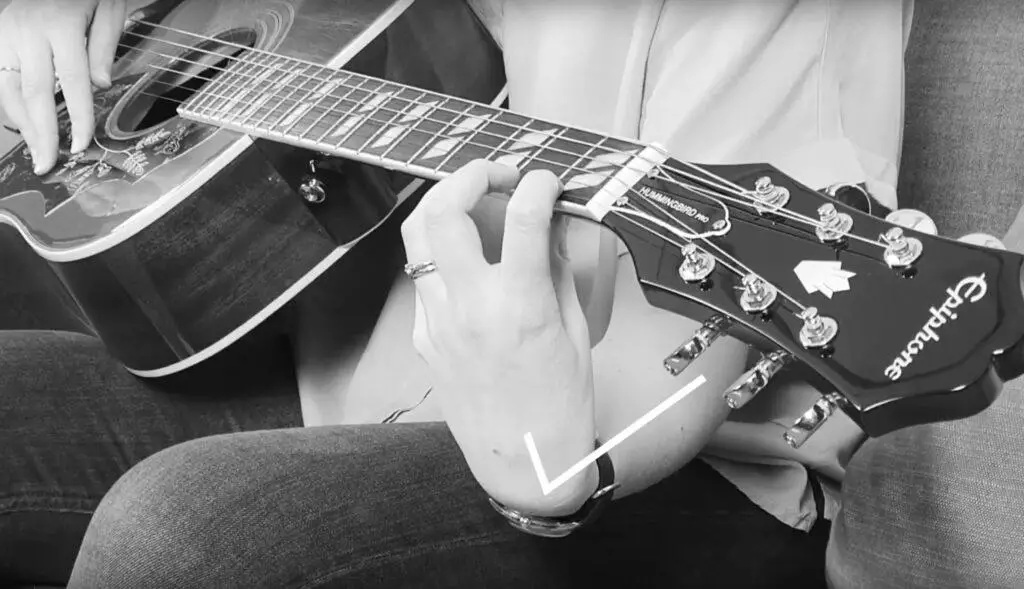Are you tired of feeling like a clumsy beginner when it comes to fingerpicking on your guitar? Have your attempts at playing with speed, accuracy, and musicality left you feeling more like a drunken chicken pecking at a cornfield than a guitar virtuoso? Fear not, my fellow aspiring fingerpickers, for I am here to guide you on your journey to mastering the art of fingerpicking. So grab your guitar, loosen up those digits, and get ready to rock (or folk, or blues, or whatever genre tickles your fancy) like never before! It’s time to take your fingerpicking skills to the next level with a little bit of speed, a dash of accuracy, and a whole lot of musicality.
Contents
- 1 Unlocking the Foundations of Fingerpicking Technique
- 2 Exploring the Role of Hand Position and Finger Independence for Speed
- 3 Enhancing Accuracy Through Targeted Practice Strategies
- 4 The Art of Dynamics and Tone Control in Fingerstyle Guitar
- 5 Incorporating Scales and Arpeggios into Fingerpicking Practice
- 6 Expanding Your Musical Vocabulary with Advanced Fingerpicking Patterns
- 7 The Journey Towards Fingerpicking Mastery: Practice, Patience, and Perseverance
- 8 FAQs
- 9 Now go forth and pluck like a pro!
Unlocking the Foundations of Fingerpicking Technique
So, you want to master the elusive art of fingerpicking, eh? Well, you’ve come to the right place! Let’s dig deep and uncover the secrets to unlocking the foundations of this essential guitar technique.
First things first, you’ve got to get those digits in tip-top shape. Here are some finger exercises to strengthen those tiny muscles and get them nimble and ready for action:
- Warm up by doing some simple finger stretches – those babies need some TLC!
- Practice finger independence by playing individual notes with each finger - let them fly solo for a bit!
- Get those fingers working together by practicing arpeggios – harmony in motion, baby!
Next up, let’s talk about hand positioning. Your hand is like a ninja – it needs to be in the perfect stealth mode to execute those fingerpicking moves flawlessly. Keep your hand relaxed, your wrist straight, and your fingers gently curved. And remember – no tension allowed!

Exploring the Role of Hand Position and Finger Independence for Speed
Have you ever tried typing with all your fingers stuck together like a bunch of bananas? It’s not pretty. Just like a monkey trying to type out Shakespeare, hand position and finger independence play a crucial role in speed and accuracy when it comes to typing, playing musical instruments, or even just flipping someone off behind their back.
Think of your hands as a pair of ballet dancers pirouetting across the keyboard, each finger gracefully dancing to its own tune. The right hand is the prima ballerina, effortlessly leading the way with precise movements and delicate touches. Meanwhile, the left hand is the rebellious understudy, always trying to steal the spotlight with its flashy gestures and dramatic flair.
But just like in a Broadway show, teamwork is key. Your hands need to work together in perfect harmony to achieve maximum speed and efficiency. It’s like a well-oiled machine, with each finger playing its part and doing its own little dance to keep up with the fast-paced choreography of typing or playing the piano.
So next time you find yourself struggling to keep up with the speed of your thoughts or the rhythm of a song, take a moment to appreciate the intricate dance of hand position and finger independence. Embrace the chaos, master the art of multitasking, and who knows? You might just find yourself typing out the complete works of Shakespeare with a banana in each hand.

Enhancing Accuracy Through Targeted Practice Strategies
Have you ever felt like your aim was as accurate as a blindfolded squirrel throwing darts? Fear not, for there are targeted practice strategies to help enhance your accuracy and finally hit that bullseye!
First off, let’s talk about **visualization**. Close your eyes and imagine yourself nailing that target dead center. Envision every detail – the perfect stance, the steady grip, the release of the arrow. Visualization can help train your brain to execute the shot flawlessly when you actually take aim.
Next up, try **varying your practice distances**. Don’t just stick to one distance and expect to improve across the board. Mix it up by practicing at different ranges to challenge yourself and improve your overall accuracy. Plus, it keeps things interesting and prevents your practice sessions from getting stale!
Another useful strategy is **focusing on your breathing**. Just like a relaxing yoga session, proper breathing techniques can help calm your mind and body, leading to smoother and more accurate shots. Take a deep breath, relax those shoulders, and let that arrow fly with precision!

The Art of Dynamics and Tone Control in Fingerstyle Guitar
When it comes to fingerstyle guitar, dynamics and tone control are like the salt and pepper of a delicious musical dish. Without them, your playing can end up as bland as a plate of unseasoned boiled chicken. So, how can you master the art of adding flavor to your fingerstyle guitar playing?
First off, let’s talk about dynamics. Dynamics are all about adding variation in volume and intensity to your playing. Think of it like a rollercoaster ride for your audience’s ears. You can achieve different dynamics by adjusting your picking hand pressure, using your fingertips to pluck the strings, or even incorporating rhythmic variations into your playing.
Next up, let’s dive into tone control. Tone control is like the ”spice” that gives your playing character and personality. You can adjust your tone by experimenting with different fingerpicking techniques, using different parts of your fingers to pluck the strings, or even playing closer to the bridge or neck of your guitar.
So, the next time you pick up your guitar to play some fingerstyle tunes, remember to sprinkle in some dynamics and tone control to take your playing to the next level. Your audience will thank you for serving up a musical feast for their ears!

Incorporating Scales and Arpeggios into Fingerpicking Practice
So you’ve mastered the basics of fingerpicking and you’re ready to take your skills to the next level. One way to spice up your practice routine is by incorporating scales and arpeggios into your fingerpicking exercises. It may sound intimidating, but fear not! With a bit of practice and patience, you’ll be fingerpicking like a pro in no time.
One fun way to incorporate scales into your fingerpicking practice is by creating a warm-up routine that includes scales in different keys. Start with some simple major scales and gradually work your way up to more complex scales like pentatonic or blues scales. Not only will this help improve your finger dexterity, but it will also give your playing a fresh new sound.
Arpeggios can also add a new dimension to your fingerpicking practice. You can start by practicing simple arpeggios in different positions on the fretboard, and then challenge yourself by incorporating them into your favorite songs. Before you know it, you’ll be effortlessly weaving arpeggios into your fingerpicking arrangements like a boss.
Remember, the key to incorporating scales and arpeggios into your fingerpicking practice is to start slow and gradually increase the difficulty. Don’t get discouraged if you don’t master them right away – it’s all part of the learning process. So grab your guitar, warm up those fingers, and get ready to take your fingerpicking skills to the next level!
Expanding Your Musical Vocabulary with Advanced Fingerpicking Patterns
So you think you’re a fingerpicking master, huh? Well, prepare to have your mind blown with some advanced fingerpicking patterns that will take your musical skills to the next level!
First up, we have the elusive “Travis Picking” technique. Named after the legendary guitarist Merle Travis, this pattern involves alternating the bass notes with your thumb while simultaneously plucking the melody notes with your other fingers. It’s like a beautifully orchestrated dance between your digits, creating a rich, full sound that will leave your audience in awe.
Next on the list is the ”Carter Scratch”, inspired by Mother Maybelle Carter of the Carter Family. This pattern combines simple melody lines with intricate thumb work, resulting in a charmingly old-timey feel that will transport you straight to a front porch in the backwoods of Tennessee. It’s the perfect blend of nostalgia and technical prowess.
And finally, we have the “Percussive Fingerstyle” technique. This pattern adds an extra layer of complexity by incorporating percussive elements into your fingerpicking, creating a rhythmic groove that will have heads bobbing and feet tapping in no time. It’s like playing the guitar and drums all at once – a true multitasking marvel!
The Journey Towards Fingerpicking Mastery: Practice, Patience, and Perseverance
So, you’ve decided to embark on the epic quest towards fingerpicking mastery. Congratulations! You are about to enter a world filled with calloused fingertips, frustrating practice sessions, and the sweet satisfaction of nailing that elusive riff.
First things first, practice. And when we say practice, we mean lots and lots of it. Your fingers need to become one with the strings, like a well-oiled machine. Spend hours (or maybe even days) honing your craft, playing the same lick over and over until your fingers revolt and threaten to go on strike.
Next up, patience. Rome wasn’t built in a day, and neither will your fingerpicking skills be. It’s easy to get discouraged when you can’t seem to get that pesky riff right, but remember – every mistake is just a stepping stone towards perfection. Take a deep breath, have a cup of tea, and try again.
And finally, perseverance. There will be days when you feel like throwing your guitar out the window and giving up altogether. But don’t give in to the dark side! Keep pushing through, keep practicing, and one day you will wake up and realize that you have become a fingerpicking master. And that, my friend, is a journey worth taking.
FAQs
How can I improve my speed when fingerpicking?
Well, first off, you should probably put down the hot sauce you’re trying to eat with your fingers while practicing. Jokes aside, speed in fingerpicking comes with practice. Start slow and gradually increase your tempo as you get more comfortable with the patterns. Also, make sure your fingernails are trimmed so they don’t slow you down!
What techniques can help improve accuracy in fingerpicking?
Accuracy is key when it comes to fingerpicking. One technique that can help improve accuracy is focusing on each finger’s movement individually. Make sure you’re hitting the right strings with the right fingers. Another tip is to practice with a metronome to keep you on track. You don’t want your fingerpicking to sound like a cat walking on a piano!
How can I add musicality to my fingerpicking?
Ah, the age-old question of adding flair to your fingerpicking. One way to add musicality is to play around with dynamics. Experiment with playing soft and loud to add some emotion to your playing. Also, don’t be afraid to throw in some slides, hammer-ons, and pull-offs to spice things up. Just make sure it doesn’t sound like you’re trying to start a fire on your guitar!
Now go forth and pluck like a pro!
Congratulations, dear reader, you have now unlocked the secrets to mastering fingerpicking. With speed, accuracy, and musicality at your fingertips (literally), the world is your stage. So go on, serenade your friends, impress your family, and dazzle your pets with your newfound fingerpicking prowess. Remember, practice makes perfect, but a little bit of flair and finesse never hurt anyone. Rock on, fingerpickers, rock on.



